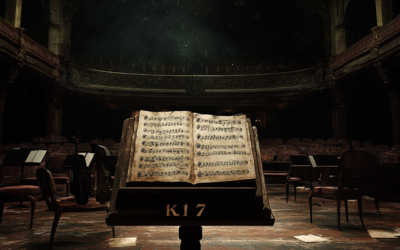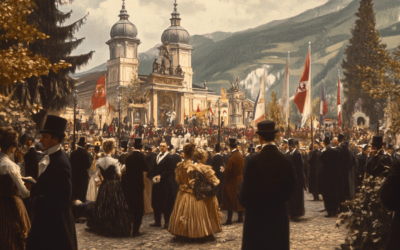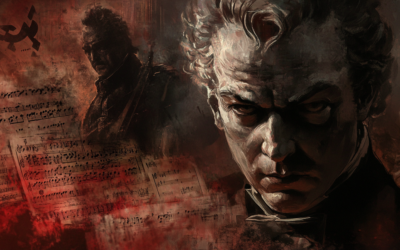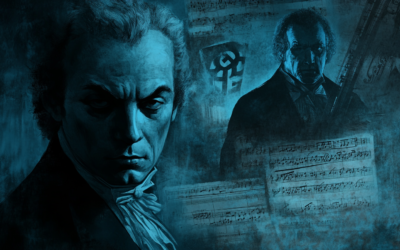Wolfgang Amadé Mozart
The Vienna Disaster: The Crumbling Facade of the Mozart Legend
The failure of La Finta Semplice in Vienna was a turning point for the Mozart family, revealing the cracks in the facade of Wolfgang’s prodigious reputation and prompting a desperate escape to Italy in search of redemption.
Mozart in Italy: The Untold Story
Was Mozart truly a solitary genius, or was he merely the instrument of his father’s ambition? “Mozart in Italy” challenges the conventional narrative, revealing a complex dynamic between father and son that shaped the course of music history. Prepare to question everything you thought you knew.
“Everyone in Vienna lamented that little Mozart was unable to compose the opera, or that it was so poorly executed that it could not be performed, or that it was his father, and not he, who had written the music”
Mozart in Italy
The story of Mozart’s early successes often overlooks the harsh reality of his and his family’s struggles, particularly during their time in Vienna. Far from the romanticized tales of a prodigious genius, the reality was one of disappointment, failure, and unmet expectations. This chapter in Mozart’s life serves as a stark reminder that not all was as it seemed behind the scenes.
The Humiliation of La Finta Semplice
In 1768, the young Wolfgang, at just twelve years old, was tasked with composing the opera La Finta Semplice (The Feigned Simpleton), a challenge that proved too great. Despite Leopold Mozart’s fervent efforts to present his son as a child prodigy, capable of remarkable feats, the opera was met with harsh criticism and suspicion. Many in Vienna believed that the music had not been composed by Wolfgang at all, but rather by his father, or that the work was simply too poor to be performed.
The opera was riddled with errors, particularly in its handling of the Italian language and prosody, which was crucial for opera. Words were mispronounced, syllables were misplaced, and the music itself was simplistic and repetitive, failing to meet the standards expected by the Viennese audience. The performers, unimpressed by the quality of the work, refused to stage it, leading to a complete collapse of the project. The impresario, Afflisio, known for being a shrewd and sometimes unscrupulous businessman, quickly recognized the deficiencies in the opera and refused to invest further in what he saw as a doomed venture.
The Fallout: A Tarnished Reputation
Leopold’s attempts to salvage the situation only made matters worse. Despite his desperate pleas and efforts to promote the opera, the Viennese court and public remained unconvinced. The involvement of Leopold in the composition became increasingly apparent, particularly in the detailed corrections and revisions he made to the score. This only further fueled the belief that Wolfgang was not the musical genius his father claimed him to be.
The failure of La Finta Semplice had significant repercussions. The Mozarts were not only humiliated in Vienna but also faced consequences back in Salzburg. Leopold’s reputation suffered greatly, with the Archbishop of Salzburg suspending his salary and expressing his displeasure at the whole debacle. The family’s future in Salzburg became uncertain, prompting Leopold to consider a drastic change.
The Italian Escape
Facing a hostile environment in both Vienna and Salzburg, Leopold decided that the only way to restore their fortunes was to leave Austria and embark on a tour of Italy, the heartland of music. He hoped that Italy would offer the opportunities and recognition that had eluded them in Vienna. With Wolfgang’s youth still an asset, despite his growing age, Leopold meticulously planned the trip, securing letters of recommendation and financial support.
However, the decision to leave Salzburg came at a cost. Nannerl, Wolfgang’s sister, and their mother were left behind, forced to live in relative obscurity while Leopold and Wolfgang pursued fame and fortune in Italy. The journey to Italy marked a turning point for the Mozart family, as they sought to escape the shadow of their failures and start anew.
You May Also Like
Constanze Mozart’s Enduring Love
Although some have doubted her devotion, Constanze’s own words and actions illustrate a widow deeply committed to preserving Mozart’s legacy. Diaries, personal correspondence, and eyewitness testimony all challenge the notion that she neglected his memory—while the circumstances around his burial grow ever more perplexing.
A Revealing New Interview on His Thematic Catalogue
We’re excited to present a brand-new interview that challenges many of the long-held assumptions about Mozart’s Thematic Catalogue (1784–1791). Conducted by Swedish journalist Henry Grynnsten, this conversation delves into groundbreaking forensic techniques—like advanced ink analysis and digital image processing—that may change the way we view Mozart’s late works.
The Rattling Symphony: A Critical Take on K. 17
Often attributed to Mozart, the K. 17 symphony is anything but refined. Lacking orchestration and filled with gaps, it raises more questions than answers about its true authorship.
The Hidden Origins of the Salzburg Festival: A Nationalist Dream
The Salzburg Festival, far from being a mere celebration of Mozart’s genius, was born out of nationalist ambitions during a turbulent period in Austro-German history. Conceived by figures like Max Reinhardt, Heinrich Damisch, and Friedrich Gehmacher, the festival was deeply rooted in ultranationalistic ideals, transforming Mozart’s legacy into a tool for cultural dominance. The truth behind its founding has long been obscured, but the primary sources tell a different, darker story.
Mozart, Wagner, and the Nazi Myth
The Führer’s admiration for Wagner’s racially charged ideology not only influenced the policies of the Nazi regime but also reshaped the legacy of Mozart. Under National Socialism, Mozart was not celebrated as a universal genius but as a symbol of German purity and superiority. His music, stripped of its international influence, was rebranded as an expression of Aryan identity, intended to unify and inspire the German people.
Mozart, the Anschluss, and Nazi Propaganda
Following the 1938 Anschluss, the Nazi regime rebranded Mozart as the quintessential German composer, using his image to promote unity between Austria and Germany. The Salzburg Festival became a platform for Nazi propaganda, distorting Mozart’s legacy to fit their nationalistic and racial agenda.







